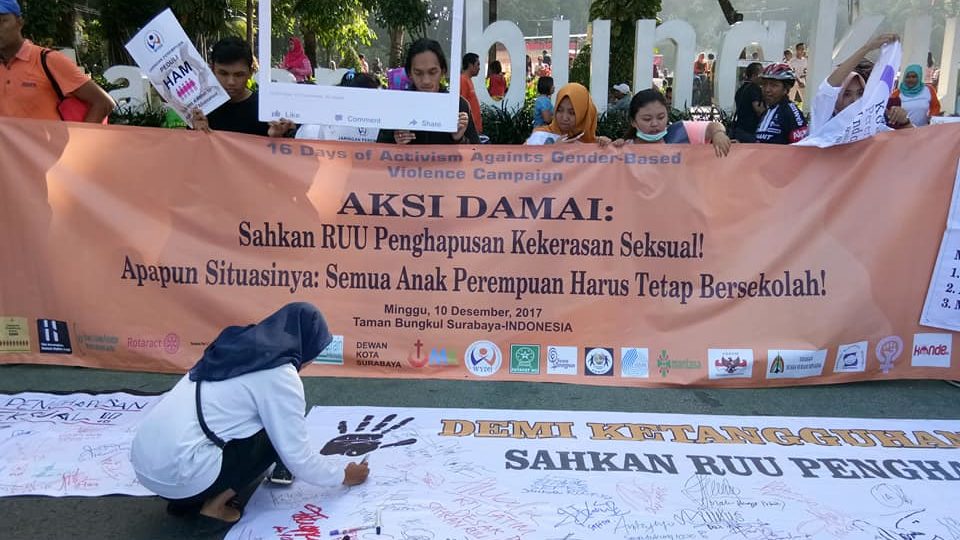Among the many demands made by student protesters throughout Indonesia this week, which have largely been motivated by their rejection of several problematic bills Parliment has been trying to pass before the current legislative session ends, is the passage of the much-delayed Eradication of Sexual Violence bill (RUU PKS), which would enforce harsher punishments for perpetrators of gender-based violence and provide greater protections for victims.
Unlike the RUU KPK bill (revisions to laws governing the Corruption Eradication Commission), which critics say would cripple Indonesia’s anti-graft agency but was nonetheless passed into law by the House of Representatives (DPR) in record time as they neared the end of their current term, DPR members are evidently not in any rush to push RUU PKS forward.
“I have coordinated with the working committee, and because there is little time left and there are other matters to be discussed and finalized, we have decided to delay [RUU PKS],” House Speaker Bambang Soesatyo told reporters today, as quoted by Kumparan.
The current batch of DPR legislators, who have served since 2014, are coming to the end of their terms on September 30, with a new batch set to be sworn in on October 1.
Bambang said that discussions on RUU PKS, like other bills not finalized this term, will be carried over to be deliberated by legislators during the 2019-2024 period. That said, it is too soon to say how close the bill actually is to completion.
“I heard from the head of the RUU PKS working committee that they don’t even have an agreement on the name of the bill. That’s why we can’t pass it in such a short time,” he said.
RUU PKS, which entered the National Legislation Program in 2016, was drafted by Komnas Perempuan (The National Commission on Violence Against Women) in cooperation with the Service Provider Forum (FPL).
The bill clearly defines different forms of sexual violence and sets out the responsibilities of the state in dealing with each of those instances. It also provides for the protection of victims and witnesses, increases their access to justice, recovery and reparation mechanisms for victims and rehabilitation for offenders.
RUU PKS also acknowledges that sexual violence can take place between same-sex partners to provide protection to the victims of such crimes — that acknowledgment has reportedly been one of the major roadblocks to the bill’s passage and one of the main reasons for its staunch opposition from conservative groups and parties.




